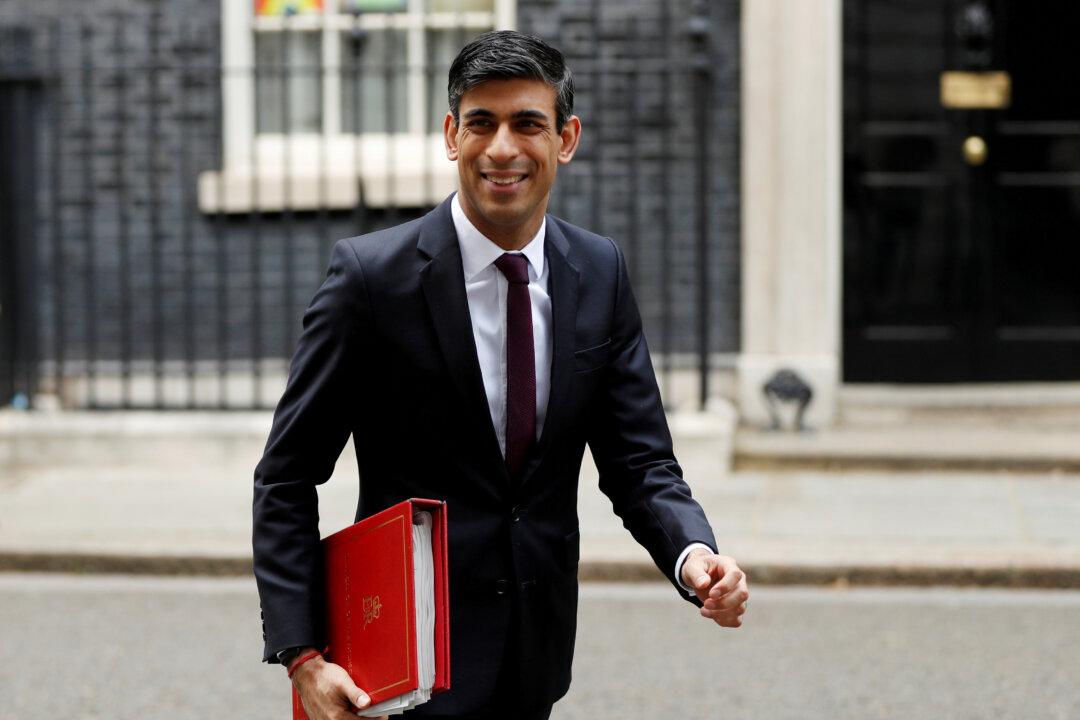Britain’s Chancellor Rishi Sunak said that the UK will soon see the “economic shock laid bare” and that the country cannot sustain record levels of public borrowing in its attempt to deal with the consequences of CCP virus pandemic.
Economic statistics to be published this week will mean “people will see the scale of the economic shock laid bare,” Sunak told The Sunday Times.





